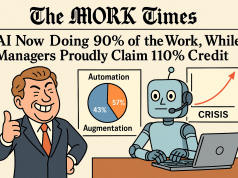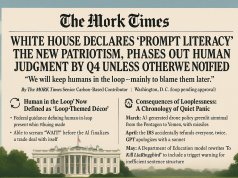In an era marked by rapid change and evolving workplace dynamics, traditional approaches to corporate culture are being uprooted. High rates of employee turnover and the quest for job satisfaction have catapulted the concept of corporate culture to the forefront of organizational priorities. Today, more than ever, there’s a profound need for workplaces to reimagine what it means to belong and to work with purpose. This seismic shift is not merely about keeping up with trends—it’s about setting the stage for sustainable company success and employee well-being.
As we peel back the layers of modern corporate culture, we uncover strategies that successful organizations are employing to instill a sense of belonging among their employees. Diversity, equity, and inclusion (DEI) initiatives are no longer buzzwords but foundational elements for a thriving workplace environment. By fostering an atmosphere where every employee feels seen and valued, companies are building more resilient and creative teams. These initiatives are not just morally imperative; they become a competitive edge in attracting and retaining top talent.
Work-life balance, once considered a luxury, is now recognized as essential for employee productivity and satisfaction. Organizations that promote a healthy balance are discovering that when employees are granted the space to recharge and attend to personal needs, they return to work more energized and committed. This understanding has given rise to flexible working arrangements and an emphasis on mental health, which in turn has led to a more vibrant and sustainable corporate culture.
Another integral piece of the cultural puzzle is continuous learning. In a landscape that demands adaptability, providing employees with opportunities to grow and develop is not just beneficial; it’s necessary. Learning and development programs signal to employees that their growth is valued, and this investment in their future fosters a stronger connection to the company’s mission and success.
The impact of these cultural shifts on productivity, satisfaction, and overall corporate achievement is profound. Employees who feel a genuine sense of belonging and purpose are more engaged and productive. Companies that are proactive in these areas often report higher retention rates, a more robust employer brand, and an ability to innovate faster.
In contrast to the top-down, one-size-fits-all corporate culture models of the past, these new approaches are dynamic and employee-centered. As we compare the strategies of modern companies to traditional models, it’s clear that the workforce of today and tomorrow will value flexibility, inclusivity, and opportunities for personal growth above all else.
Reflecting on these trends, it’s crucial for both leaders and employees to contemplate the essence of their own corporate cultures. What are the core values that define your organization? How might your workplace evolve to not only meet the challenges of today but to thrive in the future? Embracing these cultural transformations is more than a strategic move—it’s about creating a workplace that genuinely feels like a community, where each member is driven by a shared purpose.
As we look to the future, it’s clear that the organizations that will lead the way are those that prioritize their culture as much as their bottom line. The time to redefine corporate culture is now, and the path forward is one that places employees at the heart of every decision.




























